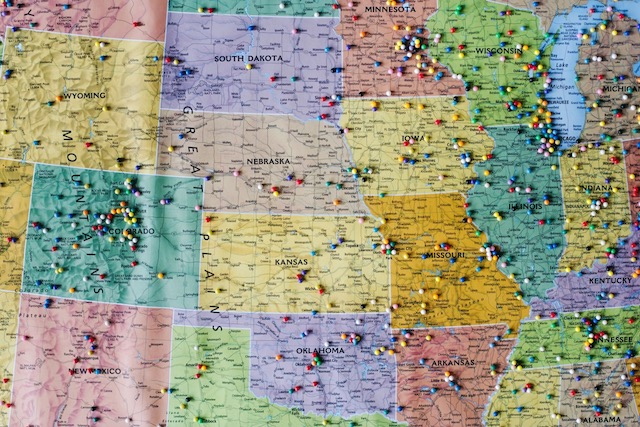Even though many think of medication as a necessity, that doesn’t mean it’s always exempt from sales tax. This post will explore the taxability of the following types of medications:
- Prescription drugs
- Nonprescription drugs for humans sold without a prescription
The following will lay out generally which states consider these different types of drugs to be taxable or non-taxable, with a couple of exceptions:
- Animal medication – Some states treat medication for animals differently than medication for humans when it comes to sales tax.
- Other drugs – Some states also sometimes also have special tax treatment for oxygen, chemotherapy drugs and insulin.
We suggest checking with your individual state or obtaining professional guidance if you sell any of the above items.
Important to Note: This blog post is for informational purposes only and will provide you with a starting point in your research. Every state is different when it comes to sales tax. Also, while we will strive to keep this post up to date, note that each individual state’s sales tax rules and laws change constantly. If you need help deciding whether to charge tax on your products, we recommend you contact your state’s taxing authority or a vetted sales tax expert.
What about sales tax on supplements?
Do not use this list to determine the taxability of supplements. In most states, supplements are taxed as if they were food, but with notable exceptions. For sales tax on supplements, use this blog post as reference.
In which states is prescription medication taxable?
Good news! Prescription drugs are almost always exempt from sales tax.
The exception is Illinois, where prescription drugs are taxed at the state level, but at a reduced state rate of 1%. All drugs (prescription and nonprescription) are tax exempt at the local level.
In which states is nonprescription medication taxable?
This is a list of how each state considers nonprescription medication to be taxed. Most states consider nonprescription medication to be taxable. In state that do not consider prescription drugs taxable, we’ve included sources so you can double check your specific use case against the state’s tax code to ensure that you are charging sales tax correctly.
Also, in many cases, nonprescription drugs are non-taxable if they are prescribed by a doctor. We recommend checking with your state’s taxing authority or a sales tax expert if you have questions about any particular sales tax use cases when it comes to medication.
Alabama – Nonprescription medication is taxable.
Arizona – Nonprescription medication is taxable.
Arkansas – Nonprescription medication is taxable.
California – Nonprescription medication is taxable.
Colorado – Nonprescription medication is taxable.
Connecticut – Nonprescription medication is tax exempt in Connecticut. (Source)
Florida – Nonprescription medication is tax exempt. See a list of tax exempt nonprescription medication in Florida here.
Georgia – Nonprescription medication is taxable.
Hawaii – Nonprescription medication is taxable.
Idaho – Nonprescription medication is taxable.
Illinois – Nonprescription medication is taxable at a statewide reduced rate of 1%. It is exempt from local tax. (Source)
Indiana – Nonprescription medication is taxable.
Iowa – Nonprescription medication is taxable.
Kansas – Nonprescription medication is taxable.
Kentucky – Nonprescription medication is taxable.
Louisiana – Nonprescription medication is taxable.
Maine – Nonprescription medication is taxable.
Maryland – Nonprescription medication is tax exempt in Maryland. (Source)
Massachusetts – Nonprescription medication is taxable.
Michigan – Nonprescription medication is taxable.
Minnesota – Nonprescription medication is tax exempt in Minnesota. (Source)
Mississippi – Nonprescription medication is taxable.
Missouri – Nonprescription medication is taxable.
Nebraska – Nonprescription medication is taxable.
Nevada – Nonprescription medication is taxable.
New Jersey – Nonprescription medication is tax exempt in New Jersey. (Source, p. 42 “Drugs and Over-the-Counter Drugs”)
New Mexico – Nonprescription medication is taxable.
New York – Nonprescription medication is tax exempt in New York. (Source)
North Carolina – Nonprescription medication is taxable.
North Dakota – Nonprescription medication is taxable.
Ohio – Nonprescription medication is taxable.
Oklahoma – Nonprescription medication is taxable.
Pennsylvania – Nonprescription medication is tax exempt in Pennsylvania. (Source, p. 29)
Rhode Island – Nonprescription medication is taxable.
South Carolina – Nonprescription medication is taxable.
South Dakota – Nonprescription medication is taxable.
Tennessee – Nonprescription medication is taxable.
Texas – Nonprescription medication is tax exempt in Texas. (Source)
Utah – Nonprescription medication is taxable.
Vermont – Nonprescription medication is tax exempt in Vermont. (Source)
Virginia – Nonprescription medication is tax exempt in Virginia. (Source)
Washington – Nonprescription medication is taxable.
Washington D.C. – Nonprescription medication is tax exempt in Washington D.C. (Source)
West Virginia – Nonprescription medication is taxable.
Wisconsin – Nonprescription medication is taxable.
Wyoming – Nonprescription medication is taxable.
How TaxJar can help streamline compliance
As you can see, sales tax compliance is challenging. There are so many important details that businesses must be aware of to stay compliant and avoid penalties. TaxJar can make compliance easier, by managing all the different aspects, including keeping you updated on where you have nexus, registering for sales tax permits, and automating sales tax filing and remittance. To learn more about TaxJar and get started automating your sales tax compliance, start a free, 30-day trial today.



